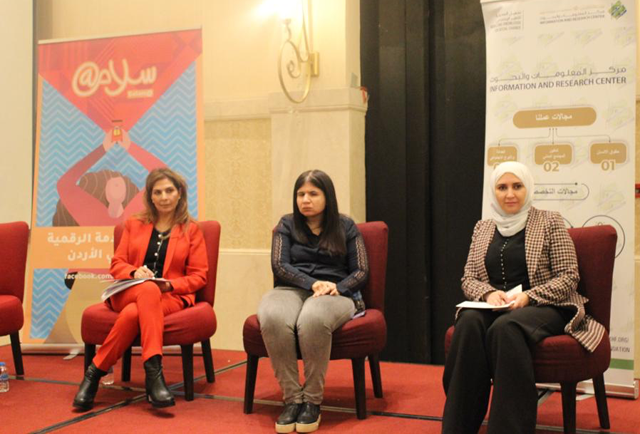You are here
Digital violence against female journalists on the rise, say specialists
By Maria Weldali - Jul 04,2022 - Last updated at Jul 04,2022

Representative image (Photo courtesy of unsplash.com)
AMMAN — As gendered digital violence is becoming “a particularly dangerous” trend, Jordanian female journalists and digital violence experts provided a snapshot of the situation in the Kingdom.
“Female journalists are women with influence and that is why they become targets of digital violence and start to experience intimidation online in relation to their work,” Jordanian journalist Shahed Jihad, told The Jordan Times in a recent interview.
The situation still remains complex in Jordan, because most families deal with female victims of digital violence in a negative manner, according to Jihad.
“There is still this mentality that sees a woman’s place in her husband’s house and no matter what she achieves in her life, she is confined to that home as a housewife,” she said.
Additionally, Jihad underlined that this mentality has led to “disturbing acts” towards women in the workplace, in particular journalists and media representatives whose work involves constant meetings, interviews and communication.
Regarding the self-censoring of journalists while writing or talking about victims of digital violence, Jihad, who is also a specialised trainer in digital safety, noted that journalists should take greater account of the particularities of the situation, and must focus on the questions raised and the way they are formulated.
“It is of utmost importance not to make the victim feel guilty, because we are not the ones who judge them. Plus we do not know the full picture,” Jihad said. Journalists should not take the victim’s statements out of context, she added.
When reporting on digital violence, media representatives should resort to robust protection mechanisms, whether through going to the Criminal Investigation Unit, a technical expert or a therapist, she said.
“Digital violence is fuelled by gender norms and misogynistic activities and practices,” said Jihad, adding that women are often intimidated into silence, particularly journalists who are at greater risk even on their digital platforms.
Speaking with The Jordan Times, Salam@ national coordinator Lina Momani said that “digital violence is also moving offline and the trend is significantly increasing”.
Female journalists may be abused using harassment, hateful messages, extortion, privacy violations, doxxing — the collection of private information — and tracking, Momani said.
Additionally, they may receive threats to their professional standing and personal reputation or be a victim of digital security attacks, she said.
Salam@, a digital safety programme for women and youth in the Middle East and North Africa (MENA) region, seeks to change perceptions and behaviours towards digital safety, increase public awareness and build capacities of women, youth and civil society organisations to operate safely online.
Additionally, Salam@ is a multi-year initiative implemented by the SecDev Foundation in Jordan, Libya, Algeria, Tunisia, Morocco, Kuwait and Bahrain, adopting a public health approach to addressing online risks and violence, including online gender-based violence.
In Jordan, the programme’s team dealt with more than 1,000 cases of technical support and around 35 cases of psychosocial support during the past two years, she added.
A survey conducted by Salam@ team, which interviewed 525 women in the Kingdom, revealed that 28 per cent of its respondents experienced cyber violence.
Related Articles
AMMAN — Over half of female journalists in Jordan have experienced digital violence, a recent Salam@ survey revealed.Speaking with The Jorda
AMMAN — The Salam@ programme for digital safety, in partnership with the Information and Research Centre of the King Hussein Foundation (IRC
AMMAN — Illuminating the challenges female journalists are exposed to, the Jordanian Network to Combat Digital Violence Against Female Journ

















